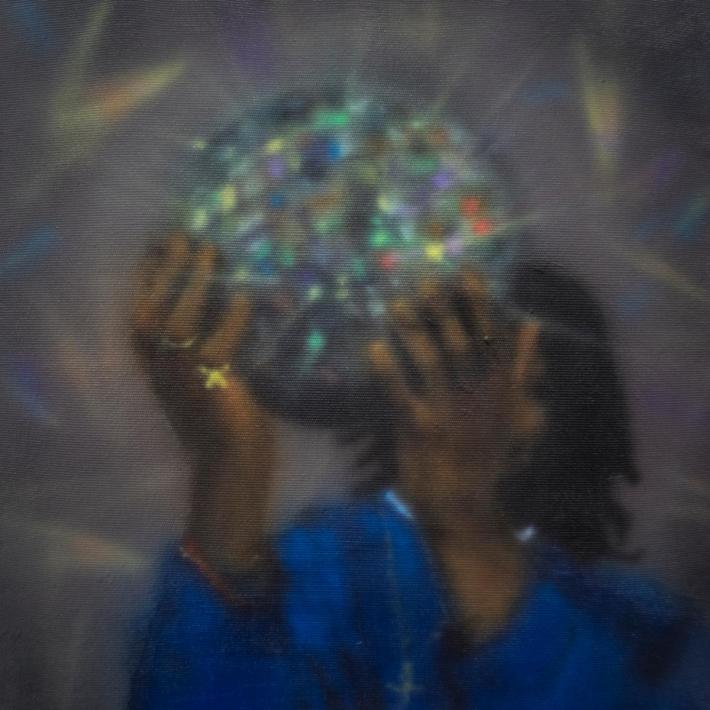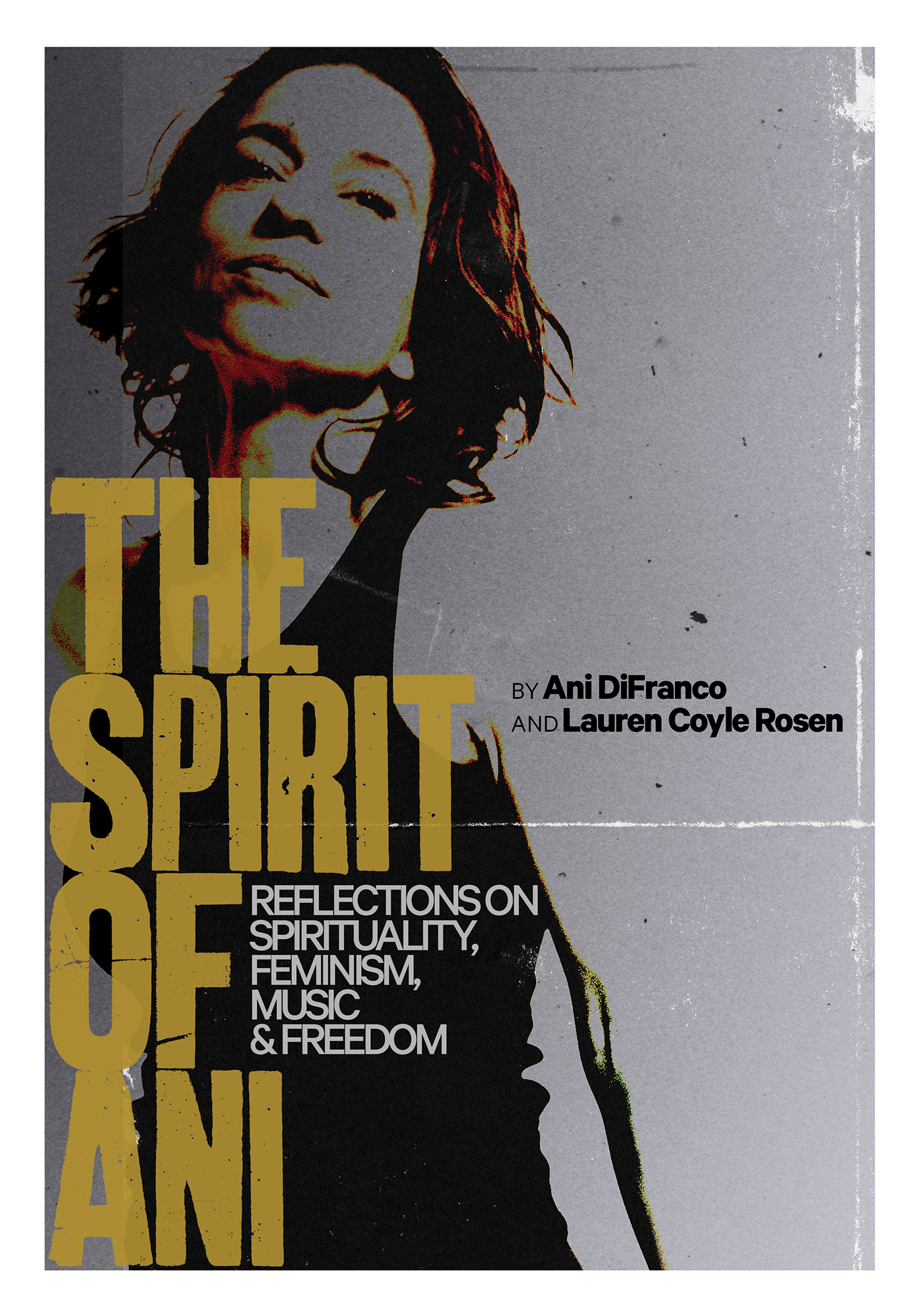Since it was first forged from breakbeats at Bronx block parties, rap has always been our most reactive art form. From beatboxing to freestyling, rappers draw their power through response -- to the beat, their environment, and one another. The fundamental principle of hip-hop is the ability to make music out of whatever you have around you, no matter how limited the means. In every era of the genre, the biggest stars have arisen not simply out of luck or experience, but rather ingenuity in how they channeled their resources, whether those were their parents record collection or pirated software, presets, and YouTube tutorials. Rap music has always been akin to alchemy, siphoning literal magic out of the most unassuming of raw materials.
One of my favorite anecdotes from the late DMX's 2002 autobiography E.A.R.L. exemplifies this practice. It takes place before the rapper had taken a stage name, back when he was still shuttling in and out of group homes during a turbulent childhood. He recalls listening with his classmates to either of New York's two R&B stations at the time, neither of which played hip-hop, which was believed to be "too ghetto" and a passing trend safe for mainstream institutions to ignore. Yet the kids made due all the same, waiting for one of the singles by Donna Summer or the Gap Band that might have a hard enough rhythm section for them to find a pocket. They'd proceed to rhyme the coolest lines they could conjure over the existing songs, until their guidance counselor would try and break up the session, calling it "silly to talk over someone else’s singing."
Decades later, talking over someone else's singing has become an explicit subgenre within rap. Just as the grandmasters birthed hip-hop by pumping new blood into the percussive grooves of funk and soul records, a widespread coalition in the underground have taken to using those records' melodies as their canvas -- ranging from the Alchemist's recent wave of collaborations back to the New York sound most associated with Roc Marciano and Ka. At the center of that movement today sits MIKE, a prodigious and prolific Brooklyn MC. Since the release of his breakthrough mixtape MAY GOD BLESS YOUR HUSTLE in 2017, MIKE has fashioned a style using fragments of voices from the past, who pass through as specters across his catalog that both guide and haunt his storytelling.
MIKE has long been focused on building out a community of like-minded "loop rappers," first with the online collective [sLUms]., and then lending his talents to a broader range of independent artists who similarly thrive in lo-fi environments, such as Navy Blue, Mavi, and Pink Siifu. Their music is a little post-Marcberg, clouds of hazy melodies rotated into shiny rims, a little post-Blonde, dreamy vignettes untethered from rigid drums, and a little post-Doris, almost too clever if not for the fact that it doesn’t care in the slightest what you make of it. Far more akin to "mumble rap" than the SoundCloud yappers who are typically saddled with the label, MIKE adopts a low, bleary murmur that is among the most radical departures from the "golden age" of hip-hop's neatly-enunciated past.
But if his style might be transgressive within the broader hip-hop landscape, MIKE could just as easily be seen as a fundamentalist. His instinctual, free-associative approach brings rap back to something elemental, in the Tribe sense of being distilled to the basics of beats, rhymes, and life. Not unlike the Native Tongues and the Soulquarians, his school of hip-hop is heavy on samples but applied with a light touch, adopting slice-of-life lyricism that is also spiritually minded. The comparison extends beyond the musicality to how the artists all foster and feed each others' creative development and dot one another's records as both producers and vocalists, creating a dynamic ecosystem putting out some of the best rap albums of today.
MIKE has his fingerprints all over this vanguard’s canon of recent classics, such as Pink Siifu’s Ensley and Earl Sweatshirt's Some Rap Songs. Disco!, his spectacular new album out today, might be the latest landmark in the scene, a front-to-back collection of standouts within the young rapper's already deep catalogue. While it’s evidently a product of that same community he helped establish, it also continues to push MIKE as an independent lodestar blazing his own path within it.
Where early MIKE albums were family affairs drawing from all corners of the new New York -- Standing On The Corner’s grimey jazz, KeiyaA's spectral soul, Ade Hakim's lethargic loops -- MIKE has since vertically integrated his operation. His recent albums have seen him conduct all of the production, limiting his guest spots to one or two marquee voices, and releasing the results through his own record label 10k. His vision is refreshingly streamlined within the modern era of rappers as brand ambassadors. He services few features and keeps his solo work self-contained, building a discography that bends back into itself rather than make any concessions to what’s making waves outside of his own shore.
A great deal of rap erected from soul samples treats its source material simply as fodder for "vibes," hollowing the original recordings out for aesthetics in a manner that effectively kills the once breathing human who initially expressed the sound. But on Disco!, the samples are alive, staged opposite MIKE instead of behind him, accenting his declarations, more like true back-up singers rather than window dressing. He shares the responsibility for storytelling, as on lead single "Evil Eye," which finds Mike rhapsodizing, "It's for my mama when I make raps dummy, when I pray/ 'Cause I know she gonna pray back for me," as John Lee and Gerry Brown vocalize back the desperation that lays underneath: "Don’t you know I need you, to get me through the night?"
MIKE's productions, often given to others and collected onto their own albums under the moniker dj blackpower, simultaneously act as bite-sized musical anthologies. He brings the listener's attention to a small nodule of sound that was once an aside within a larger composition -- a half-second vocal tic or seemingly tossed off guitar flourish -- and spins it around again and again until it has its own center of gravity. He finds pockets within clouds of melody that don't neatly interlock, but overlap harmoniously, creating natural variations that reach out and fall back into shape. Every sequence nods toward a bigger whole, rendering short arpeggios as fully realized movements. While the music is repetitive, it's never redundant.
There's an appealing architecture to how these individual loops scale up into a complete whole. Bottom heavy drums can be found buried within the low end, blurring together with MIKE's deep vocal tone to create tracks that are thick and thrumming, all parts resonating at the same frequencies. Moments bleed from one to the next, giving the entire album the feeling of a continuous mix rather than a set of singles. Not unlike Astroworld, a number of songs splice together several ideas into discrete phases, tied together by a thematic frame made clear by MIKE's narrative meshwork.
Like many children of the internet, MIKE traced rap history in reverse, drawing inspiration from the irregular heartbeats of J Dilla and the literary non-sequiturs of MF Doom. He also lived through the prominence and influence of Bandcamp beat tapes, Black Lives Matter, and Odd Future, the latter group carving out a distinct lane of defiantly apathetic verse that their Gen Z peers have since made their own. MIKE's take on that style is less cynical, allowing in more empathy and warmth. He makes journeyman rap, the kind about tackling obstacles he has yet to overcome, proclaiming lessons he is learning in real time.
MIKE has made it easy to follow this journey alongside him. Since 2016, he has released a new full-length without fail every June 21, with plenty of others in between. The result has been a body of work that serves as a steady incremental marker of the rapper’s growth, each album carving another tick mark further up his bedroom studio walls. While his skill on the page and behind the boards has risen subtly but steadily with each entry, the tone of his work took a marked shift when his mother passed away after 2018’s War In My Pen. His subsequent release Tears Of Joy was his most immersive yet, but also the one with the heaviest heart. Since then, his best songs have continued to be his most personal, serving as mantras for a mind in the process of healing, offered to others similarly adrift from loss.
Disco! is no different in this regard, finding its most powerful moments when MIKE is deconstructing the daily experience of living with grief. "It's hard to take love as it is/ Or love as it was/ When it was, it was sick/ When it wasn't it was tough/ When it's blood it be thick," goes the poem that repeats across "Big Love." MIKE often raps repeating couplets, eliminating the distinction between verses and choruses. The hooks then are simply those lyrics that draw the most immediate attention, such as when his steeled determination suddenly gives way to an open wound, as on "Center City" when he sighs, "The only chief that know these thoughts, it be me and God/ The only dreams that leave me lost, it be with me and mom."
What's changed this time is not the subject of his raps, but his intonation. MIKE commands a more expressive range when recounting those trials he's faced, combining it with a more intentional musicality that deviates from the hesitant, almost under-his-breath delivery that dominated earlier releases. "Aww (Zaza)" is a highlight of this new form, using a flow that makes use of MIKE's hearty drawl to blend his words into the same long "aaa" sound. "And I fumbled it, saaarry/ But I be chuckling/ All of this shit I be juggling, laaarge/ We said goodbye for the dumbest shit, laaass," MIKE swerves, adopting an Isaiah Rashad-like swagger that breathes vibrancy into a hashtag rap template.
A few moments here are almost anthemic, like something you might imagine him laying down for a more commercially minded rapper's single. "I'm just proving what you be about," he riffs gleefully on "ghoulish." "You ain't cool enough to be down." He comes the closest to intersecting with mainstream trends on "Sandra," an aqueous trap song that is something of a first for MIKE, with a refrain akin to the Polo G/Rod Wave/Lil Durk sect of pain-processing pop music: "Told my pops I'm trying to get right/ Don’t need no fame/ Just a dollar make it get by/ Do this shit again." But even with a title like Disco!, MIKE is in no way making plays towards clubs or the radio. This is still interior rap -- bathroom stall scrawled poetry, inner monologues accidentally overheard. By the end of the album on the stunning closing number "Spiral/Disco," he makes it clear that he "really do these bars to recover, not for punchlines."
MIKE currently sits in that rarified mode where style, technique, and instinct are all one in the same. He brings something literal to the word "flow" that other rappers with more mathematical rhyme schemes miss, his cadence carrying in and of itself just as much soul as his source material. Rather than situate himself against his contemporaries, he builds on the legacies of the artists whose songbooks provide the backbone of his own work. The most prominent sample on the album is not actually musical, but rather an excerpt from a speech paying tribute to the process of one generation passing the baton to the other: "As we, the older ones, are fading out of the show, we expect the younger ones to come up, pick it up, and do better than what we did."
At just 22, but with seven years of experience in the game, MIKE could reasonably relate to either the veteran who once defined the times or the novice taking them over. He is in creative conversation with his former idols and has become an idol himself for rappers directly brought up on his sound, and yet he’s continuing to venture further into new territory, mining the past to push forward the present. He is a conduit for a broad coalition of voices that speak across the album, taking in their perspectives and reflecting them back out like the disco ball that obscures his face on the cover. So during that same speech on the song "Leaders Of Tomorrow," its closing line can again be read either from MIKE's perspective or his audience’s: "We're listening to what you’re doing."

Disco! is out now on 10k. Get it here.






